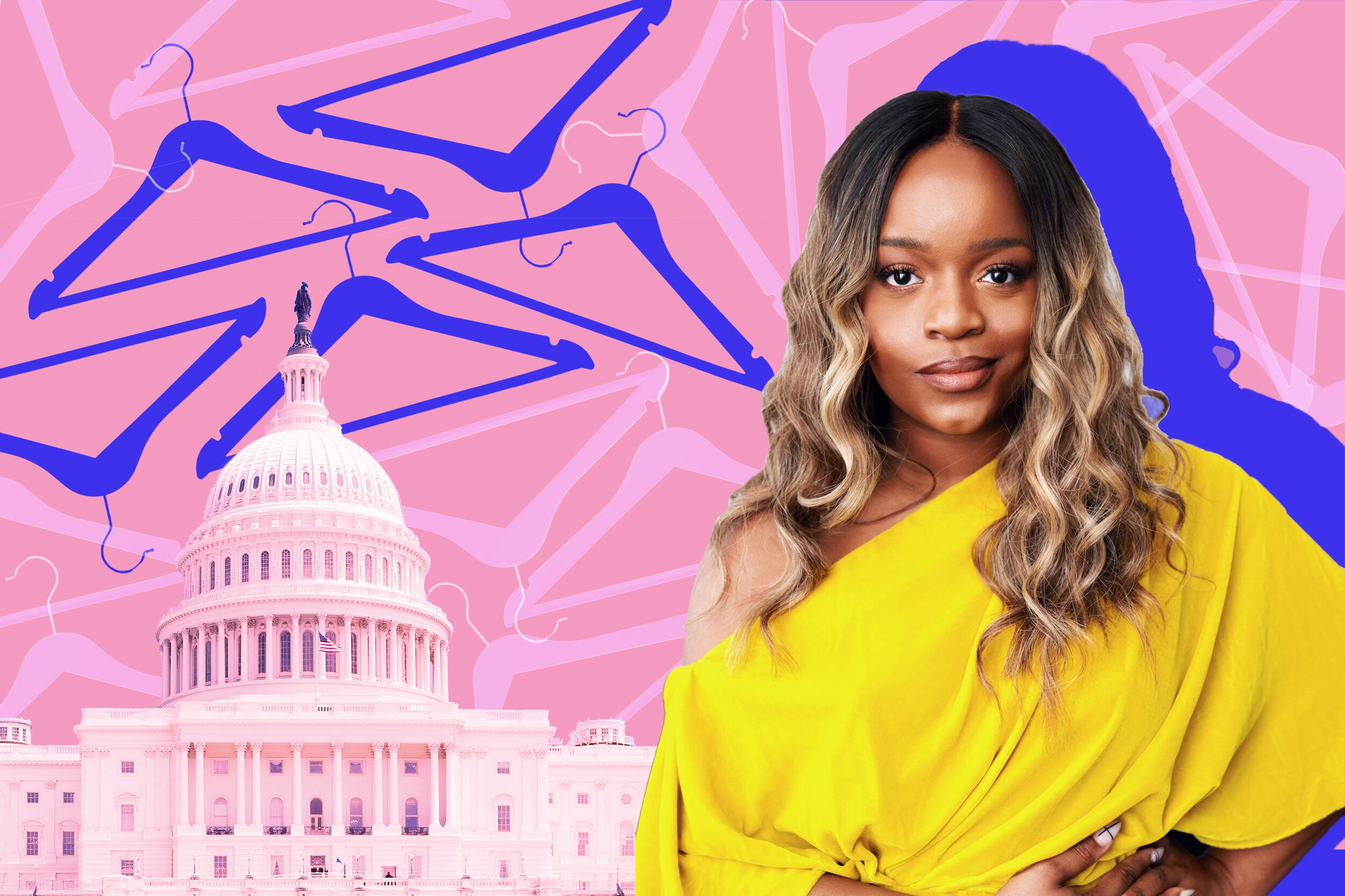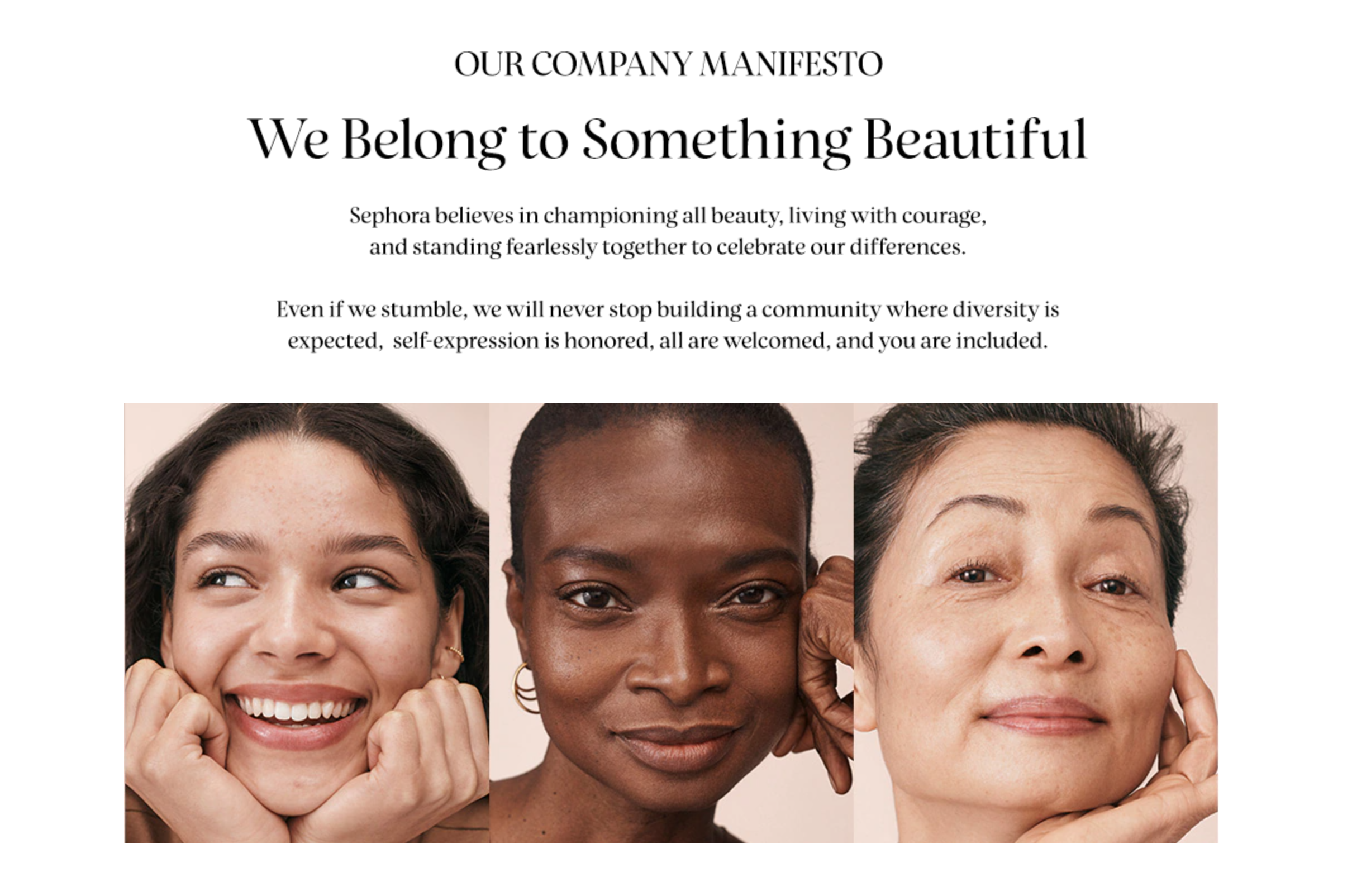Social Activist Brittany Cunningham Proves Fashion is Political
Graphic by Isabelle Hauf-Pisoni. Images via brittanypacknett.com, TrippSavvy and Home Depot.
The fight for justice takes place on more than one battlefield. Behind the scenes of social change, culture is at work sparking political discourse and calls for government action. That’s why Brittany Packnett Cunningham, a current NBC News and MSNBC contributor, also serves on the board of the Gucci Changemakers Council and Sephora Equity Advisors. A co-founder of Campaign Zero and co-host of the podcast “Pod Save the People,” Cunningham has also used her policy and equity skills on President Obama's Task Force on 21st Century Policing and the Ferguson Commission.
Activism, social justice and politics drive Cunningham, yet she loves when people ask her about her work with Gucci and Sephora, what she calls the “fun stuff.” Cunningham “keeps it real,” and she declared just that to Northwestern students on Zoom this Sunday, Oct. 10, for the Contemporary Thought Speaker Series (CTSS) panel, a student-led initiative to bring forward-thinking speakers to campus. Sitting next to a purple orchid and wearing red in front of a colorful, jam-packed bookshelf, Cunningham along with her spirit and determination stood out from the other panelists, who sat in front of what appeared to be their unadorned foyers and living rooms.
Screenshot via Joely Simon.
CTSS hosted a panel focusing on the upcoming election, featuring Cunningham; Jennifer Horn, previous chair of the New Hampshire Republican Party and co-founder of The Lincoln Project; and Elaine Kamarck, a senior fellow at the Brookings Institution. These women, each coming from a different political background, came together to discuss the presidential election this fall with The New York Times “The Daily” podcast host Michael Barbaro as moderator. Topics included the role of the pandemic, electability, party lines and “what-if” scenarios concerning the election results. With each topic, Cunningham kept it real, never shying away from direct answers and her opinion.
Weinberg senior Carol Silber, a co-president of CTSS, sees the Democratic Party as trying to encompass two different wings, she said. She chose Cunningham and Kamarck for the panel because they can speak to both wings, a more progressive one and a moderate one, respectively.
When Barbaro asked the panel if Democratic candidate Joe Biden met all of their standards, Cunningham made her opinion extremely clear, saying, “He’s not progressive enough for me.” She elaborated that we need to think about how people can evolve on issues and which leaders create environments that allow for better conditions in which to organize, as that can be a determining factor in achieving change.
Throughout the panel, Cunningham respectfully responded to Horn and Kamarck, even commending Horn, whom she does not align with on politics, for the Lincoln Project’s promotional videos. The two also agreed that the pandemic has uncovered the ignorance that exists within the government. Cunningham asked, “if [Trump] won’t protect himself, how will he protect me?” While Horn refrained from sharing her opinion on if the electoral college should be abolished, Cunningham expressed her opinion that the electoral college must be written out of the Constitution.
In a breakout room for a Q&A with Cunningham, she shared her belief that immigration and education need to be talked about more this election. Most notably, she shared three different ways of blocking votes: voter disenfranchisement, voter suppression and voter depression. Northwestern Medill professor Arionne Nettles, who moderated the Q&A, said that Cunningham’s discussion of voter depression, the efforts to convince citizens that their vote doesn't matter, stood out to her. She even learned what language to use for telling peers why they should vote and participate in local politics, Nettles said.
Nettles appreciated Cunningham’s comment in the panel that no candidate can be perfect. “We do not put these humans on pedestals ‘cause then we can’t keep them accountable,” Nettles said.
Even while holding these strong opinions on politics and playing a leading role in social activism, Cunningham also works with Gucci and Sephora. Cunningham’s ideology: use every tool in your toolbox to get what you want done.
“If you’re building a house, for example, you’re not gonna ignore your hammer,” she said. “Anywhere that I have a door to gather resources and push practices and policies, and if I have the time to, I give myself a say in those places. I am interested in exerting influence for the sake of justice wherever I can.”
Cunningham’s holistic viewpoint not only reminds us to focus energy beyond the current election, with attention to electing judges and local grassroots campaigns, but urges us to use our power as citizens in unexpected places. For her, that’s in the fashion and beauty industry.
Unabashedly she proclaimed, “Most politicians are followers, not leaders. They are waiting on public opinion to change when culture changes.”
Using Ellen Degeneres as an example, she talked about how Degeneres coming out as a lesbian woman on national television in 1997 prompted a shift in sentiment toward the LGTQIA+ community among Americans. Culture can set the tone for what happens later down the line in politics, she said. The effects are not immediate.
“In TV, film, fashion and beauty, you see people embracing diversity. But equity you can see when a sitcom talks about defunding the police, so that in however many years down the line, things move in that way,” she said. “We are having a political conversation, but so much culture shifts politics too.”
Cunningham acknowledges the ways culture goes hand in hand with social activism. Politics and fashion are not always disparate. And who doesn’t love a good makeover scene? We could always use a before and after reveal — that means we’re making changes.




